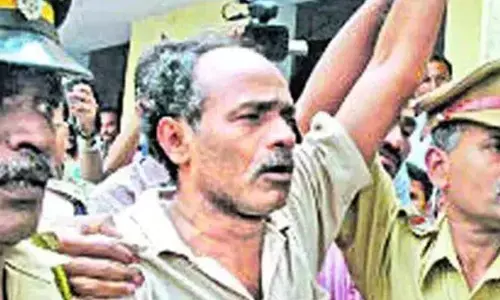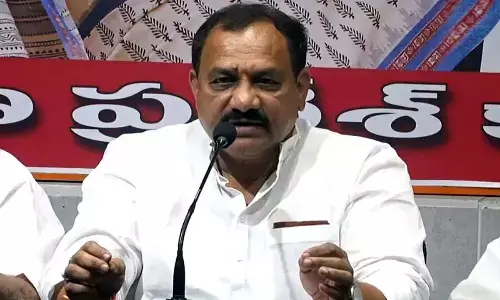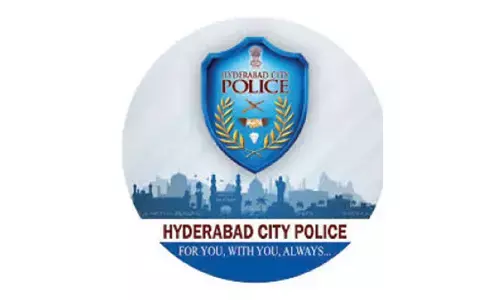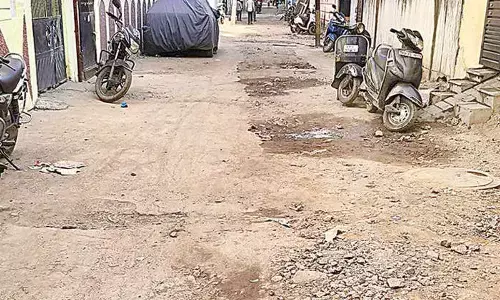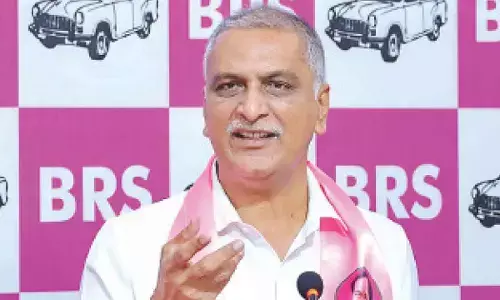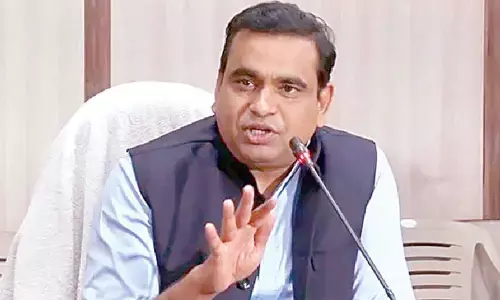Naxal leader Vikram Gowda cremated in Hebri amid tight security
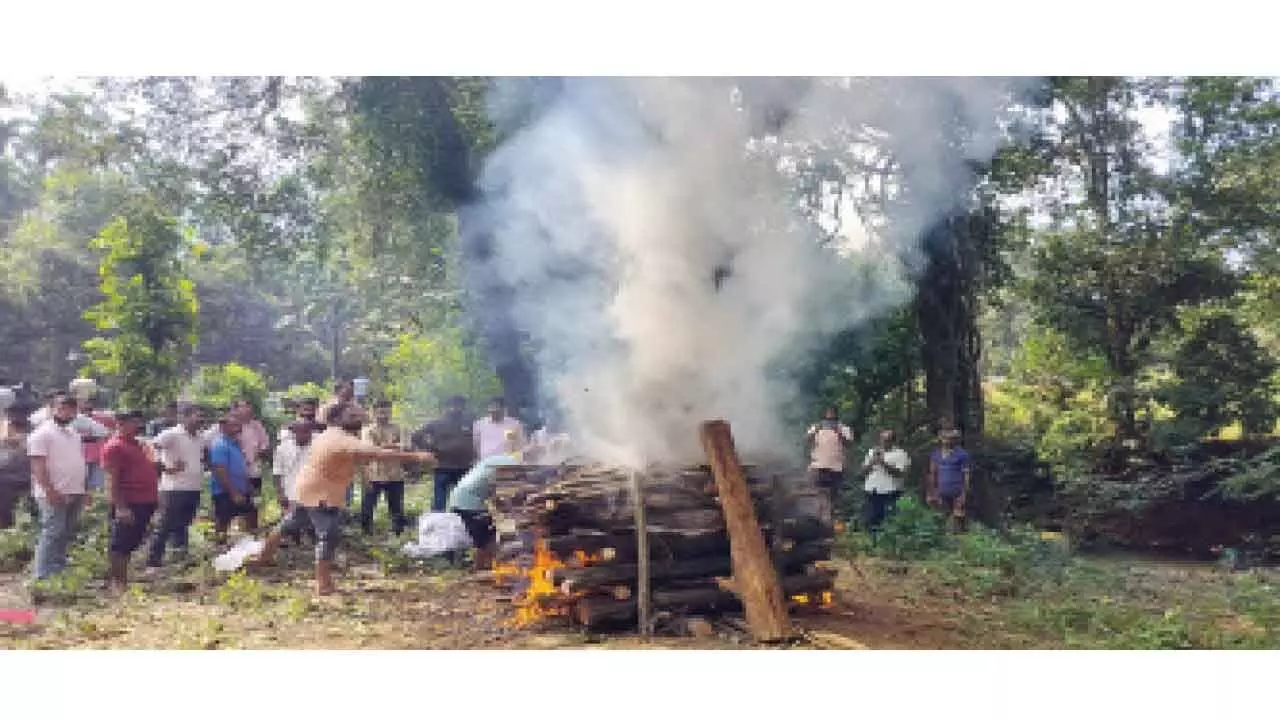
Hebri: The last rites of Vikram Gowda, a prominent Naxal leader killed in an encounter with the Anti-Naxal Force (ANF) on Monday night, were performed on Wednesday at his family property in Mairoli, Kudlu, Nadpal village, Hebri taluk. The cremation ceremony, which took place around 2 PM, was conducted by his brother, Suresh Gowda, and attended by his sister Suguna, close relatives, locals, and a heavy police presence that ensured security throughout the proceedings.
The body of the deceased was transported to the mortuary of KMC Hospital in Manipal on Tuesday evening at approximately 5 PM, under police escort. However, the post-mortem examination was delayed until Wednesday morning as the family had not arrived in time to complete the necessary formalities. As a result, the body remained under police security at the mortuary overnight.
Once the post-mortem was completed, the body was handed over to the family around 1 PM on Wednesday. Suresh Gowda received the body and spoke briefly to the media, while his sister Suguna expressed that the family had ensured the body would not remain unclaimed. She said, “We decided that my brother’s body should not remain unclaimed. We chose to conduct the last rites at his property in Kudlu.”
The cremation took place with heightened security, reflecting the sensitivity of the incident, given Vikram Gowda’s role in the Naxal movement and the tensions surrounding the encounter.
Vikram Gowda, a key figure in the Naxal movement in Udupi and Dakshina Kannada districts, was killed in a police encounter on Monday night at Pithubail, Hebri taluk.
Gowda, a resident of Koodlu in Nadpalu village, had been linked to several violent incidents, including bombings targeting the police, the burning of a government bus in Agumbe, and multiple murders, including the killing of a police informant and a teacher.
For over 15 days, the police had been conducting combing operations in the region, following intelligence about Naxal activities. These operations culminated in the encounter when Gowda’s group attempted to procure supplies from a local household. The encounter resulted in his death, marking a significant development in the fight against naxalism in the area.
Naxal activities in Udupi and Dakshina Kannada have significantly declined over the past few years. However, there have been concerns that Naxalites from Kerala may have infiltrated the region, reviving their operations. A possible contributing factor to this resurgence is the Kasturi Rangan report on forest management, which has stirred local tensions and may have provided a platform for the Naxals to mobilise support.
From hotel worker to naxal leader
Vikram Gowda’s transformation from a hotel worker in Hebri to a prominent Naxal leader is marked by a deep sense of disillusionment with the system. Born into a poor family, Gowda was reportedly assaulted by forest officials during his youth, an incident that fuelled his anger and distrust towards authority. This led him to join the Naxal movement, where he quickly rose through the ranks to become a key leader.
Despite rumours of his death due to illness years ago, Gowda remained active in Naxal operations, orchestrating several violent actions, including bombings in Hebri. His leadership had been pivotal in maintaining Naxal activity in the region for over 15 years.
Gowda’s family had long feared for his safety. His mother, Gulabi Gowda, lived in constant worry, and his brother, Suresh Gowda, was forced to leave their home due to persistent police harassment. Suresh eventually returned to Hebri and took up daily wage labour to support his family. His mother passed away during this period, and the family’s struggles continued in the wake of Vikram’s activities.
With the death of Vikram Gowda, authorities believe that the Naxal movement in the region has suffered a significant setback. His loss, described by the police as a major blow, may lead to a reduction in organised Naxal operations in Udupi and Dakshina Kannada.
The police continue to target the remaining Naxal networks in the area, determined to prevent the resurgence of such violent activities. The death of Vikram Gowda is seen as a key turning point in the ongoing effort to dismantle Naxal influence in the region, with authorities hopeful that the movement will struggle to sustain its operations without a strong leadership figure.


